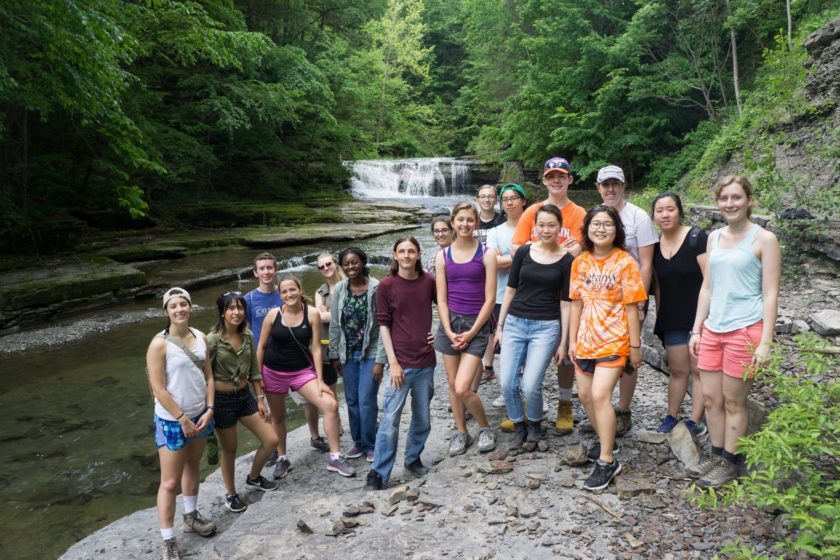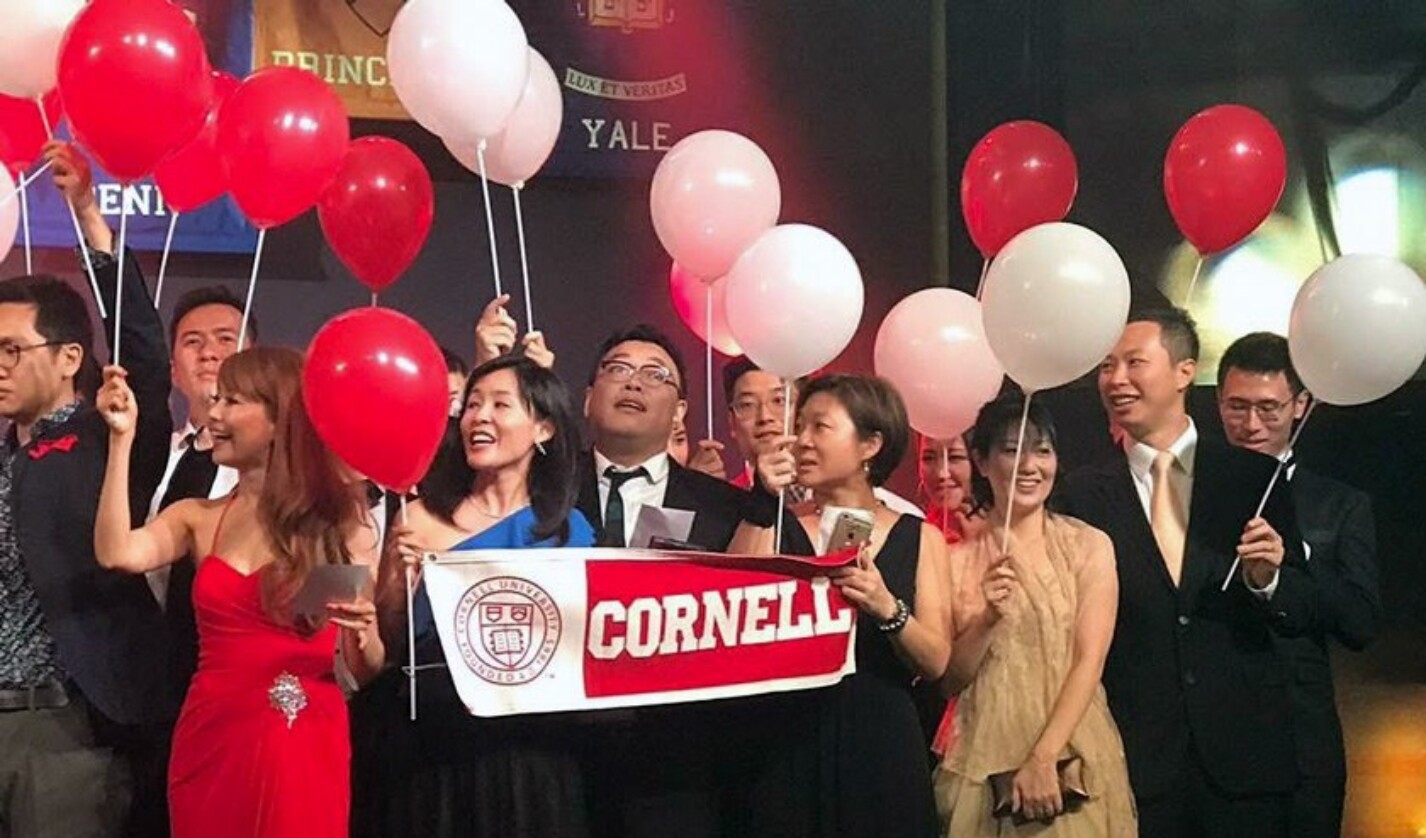Jeffrey Yen’s interest in the natural world began when he was a kid living in Taiwan. He was fascinated by the abundance of insects in Taiwan’s sub-tropical climate, and he remembers browsing through the nature books at a local research institute with his father.
“One day, I picked up a publication that portrayed some of the institute’s new fruit cultivars,” he says. “Among these were my favorite tropical fruits—mangos, lychee, and jambu wax apples. The idea that one could improve upon fruits and vegetables that we consume daily was exciting and novel to me.”
Yen is similarly excited by the big picture impacts of his field, because of the potential to breed plants that can feed our planet’s ever-growing human population. “The diversity among plants is astounding, and unraveling the relationships between genes and appearance is what keeps me going,” he says.

Yen studied plant sciences in the College of Agriculture and Life Sciences, with a focus on breeding and genetics. He graduated in December 2018, and is currently conducting research on campus. He is the recipient of the English Family Scholarship, established in 2016 to support CALS students, as well as Cornell grant aid. More than 25 percent of the payout from the university’s endowment supports financial aid for Cornell students.
“Cornell’s financial assistance has helped tremendously since both my parents retired early for health reasons,” Yen says. “I would have had to take out a significant student loan to pay for tuition otherwise.”
Yen reports that time management was one of his biggest takeaways from Cornell. At first, he was “greedy,” registering for every class he could fit into his schedule. He learned through trial and error to focus on the classes that matter most. “There are only 24 hours in a day and a set amount of time at Cornell, so it is important to manage time wisely,” he says. “Learning to say no when necessary is also critical.”
I like leaves. Observing their different shapes, sizes, textures, and venation patterns is always new and exciting!
Yen’s research is focused on understanding the genetic basis of leaf angle in grass species. Leaf angle is important because it determines how much light can be intercepted by leaves. For example, a leaf that is horizontal might maximize light capture, yet might also shade other nearby leaves. Understanding how leaf angle is genetically controlled will enable researchers to breed grass crops with optimal leaf angles, thus enabling higher yields. “I like leaves,” says Yen. “Observing their different shapes, sizes, textures, and venation patterns is always new and exciting!”
Yen is currently finalizing an NSF pre-doctoral research proposal to study apomixis in plants. During typical sexual reproduction, a plant produces both egg and sperm. Fertilization follows and a seed is produced. In one form of apomixis, the egg spontaneously turns into a new seed. This process is equivalent to cloning because the resulting seed is genetically identical to the parent plant.

“Understanding apomixis has high economic value because of the possibility to fix the genetic makeup of ‘hybrid seeds’ that have dominated agriculture for many years, due to their superior yielding capabilities,” says Yen. “If farmers save seed from hybrids and replant them, they will suffer from yield penalties due to reshuffling of the genetic material. If we can implement apomixis in modern varieties, this will allow easy regeneration of the seed stock, simply by saving the seeds.”
My Cornell mentors have been extremely encouraging and have greatly shaped who I am today. This is how I would like to mentor students in my future career.
In addition to completing his undergraduate course work and pursuing his current research projects, Yen has had countless conversations with his faculty advisors about internship opportunities, course selections, and the world in general. “My Cornell mentors have been extremely encouraging and have greatly shaped who I am today,” Yen says. “This is how I would like to mentor students in my future career.”
Yen got experience teaching students by participating in SPLASH!, an educational outreach program for middle and high school students from communities around Ithaca. Local students are invited to attend classes hosted by members of the Cornell community. The intent is to spark interest in young students to pursue a career in a related field. Yen designed and taught a SPLASH! class on the anatomy of the fruits and vegetables that people consume on a daily basis.
“I learned that some students have shorter attention spans,” he says. “I was pushed out of my comfort zone to figure out how to interact with diverse students and how to keep them engaged.”
Yen has applied to several graduate programs in genetics, and he dreams of running his own research lab and mentoring students. “My teaching philosophy is to guide students through critical thinking, instead of simply answering questions,” he says. “This may take longer, but the students gain self-learning skills in the process.”





